Few years ago, before technology took over the world and monopolize the human population, kids were highly interactive and creative in coming up with an idea of fun. Before the birth of cellphones, tabs and computers, there were real games, real entertainment and real moments. Sadly today, human interaction is rare while virtual interaction becomes more common.
BUT, come along with me as I sit in a time capsule and travel back to the period before the advent of technology. I'm not referring to the medieval era though, but I meant 1900's. Let's relive the games and fun we had in our childhood and laugh at those momentous times where we barely know anything about life.
During my younger years, all children of my age gather outside the house and went to a vast field to play. Everyday, we were gathered to have fun and play different games depending on what was agreed on. Those were the fun times; we laughed, we cried, we got bruised, scraped our knees, and got into a fight. But regardless of the physical pain, those moments were some of the best times in our lives.
Now, before all these traditional games will only be known in history books I want to make a flashback about what most Filipino children's idea of fun wayback 1900s and share it all to you. Below are some of the common native games in Philippines.
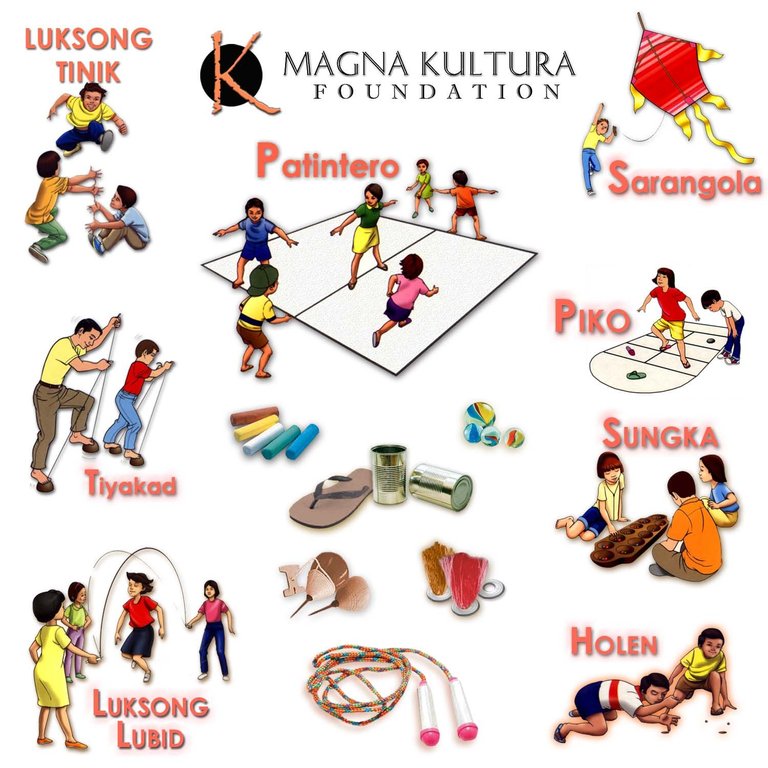
image source
THE COMMON TRADITIONAL FILIPINO GAMES
Jack Stone
A dozen of jacks and a ball are used to play jack-stone or knuckle-stone. This game is better played with a group of two or three to make it more challenging. To play this, hold the jacks in your one hand. Throw the jacks just in front of you. Then bounce the ball. As the ball bounced you must get the jacks with one hand and catch the ball afterwards. The ball must only bounce once. Then put the jacks in the other hand and continue getting the remaining jacks in the same way.
Holen (Marble)
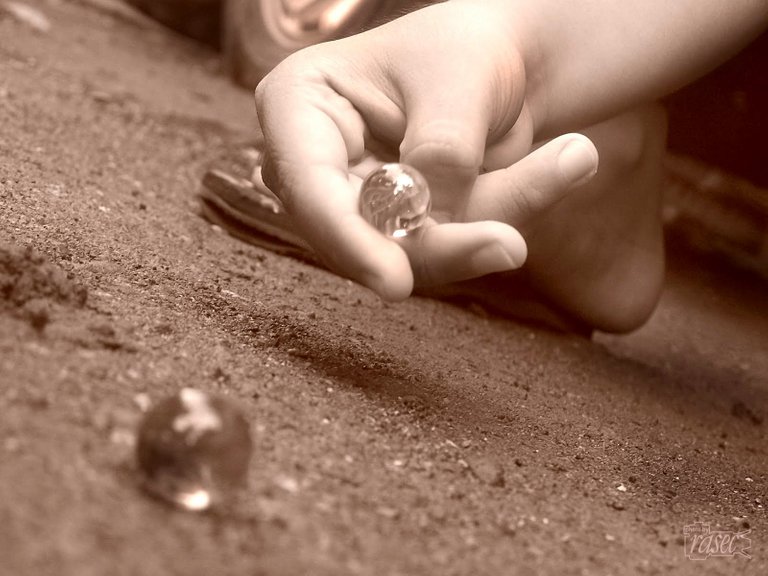
image source
A holen is a Filipino term of marble. Marbles are being scattered on the ground to serve as the target. The players uses his marble to hit the other marbles. The player who hits the most marbles wins.
Tagu-Taguan (Hide and Seek)
A common Filipino game where the seeker sings a song while the players are hiding in inconspicuous place.
The song goes like this :
Tagu-taguan, maliwanag ang buwan (Hide and seek, the moon is bright)
Masarap maglaro sa dilim-diliman (It is fun to play in the semi-dark night)
'Pag kabilang kong sampu (When I finish counting up to ten)
Nakatago na kayo (All of you should already been hidden)
Isa, dalawa, ... sampu! (One, two, ... ten!)
Another version of the chant goes:
Tagu-taguan, maliwanag ang buwan (Hide and seek, the moon is bright)
Wala sa likod, wala sa harap (Nobody in front, nobody behind)
'Pag kabilang kong sampu (When I finish counting up to ten)
Nakatago na kayo (All of you should already been hidden)
Isa, dalawa, ... sampu! (One, two, ... ten!)
After the count of ten, all players must hide their selves properly. Once a player is caught then he's out.
Chinese Garter
A kind of game that tests a person's flexibility and dexterity. Two people hold and stretch the garter in the opposite ends in horizontal line. The players shall jump over and reach the opposite end without tripping on it. The longer the game goes, the higher the garter gets. At the later part of the game, the garter will mostly be at the heads of the holder. The players will then be forced to use their full power to overcome and surpass the garter. Some even do cartwheels.
Luksong Tinik
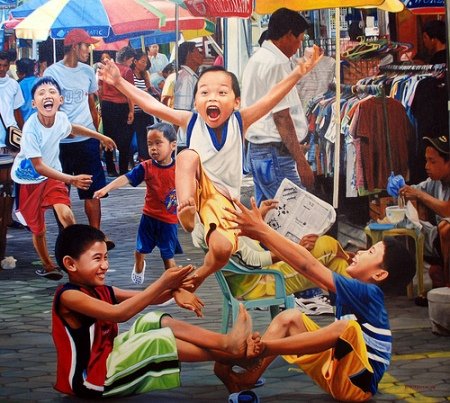
image source
This game can be played with many people that will be divided into two groups. Two people will serve as a base and a barrier. They will sit and face each other, with their soles and hands touching to form a tinik(thorn). At the first part of the game, the base will make a lower tinik(thorn) and the players will then jump over the hands without touching it. The player who accidentally touch the hand while jumping will be disqualified. As the game progresses the base will continue to put their respective hands into a higher position making it more challenging for the players. The team who can pass the barrier without any violation will be the winner.
Luksong Baka (Jump over the cow)
 image source
image source
The concept is similar to luksong tinik, however, in this game we use a person's body instead of their arms. One person will serve as the base and the barrier. At the start of the game he will position himself in a crouching manner and should do it as lowest as possible. The players then will start to jump over him one by one. As the game goes by, the person will crouch higher, until he is standing and making it difficult for the players to surpass him.
Battle Lata ( Battle of Cans)

image source
A can is put in the middle and each participating players shall hit the can using one pair of their slippers. Once they will hit the can then they are spared from punishment, but if they fail to do so and the slippers goes past the can then they will face certain consequences. Some of the consequences include spanking using the slippers, going under a trail of people, or getting hit by a slipper.
Battle Tsinelas (Battle Slipper)
.jpg) image source
image sourceSimilar to battle lata, this time the other pair of slipper is used to serve as the target. The goal is to hit the slippers trailing in the certain distance. If unable to do so then a consequence will follow.
Patintero
This game is one of the most common native Filipino games. The game is composed of two teams with five members each. The object of this game is get pass a block. A line is drawn to serve as the boundary. The attackers shall be able to get pass through the defensing team and get to the line. The defensing team on the other hand should block any attackers getting through their way. The defensing team should put a member perpendicularly to make the attackers task difficult. Once the attacker will be touched by the defender then he's out. But once all the attackers successfully dodged the opposite team and surpass the blocks then they win.
Bahay-Bahayan ( House Play)
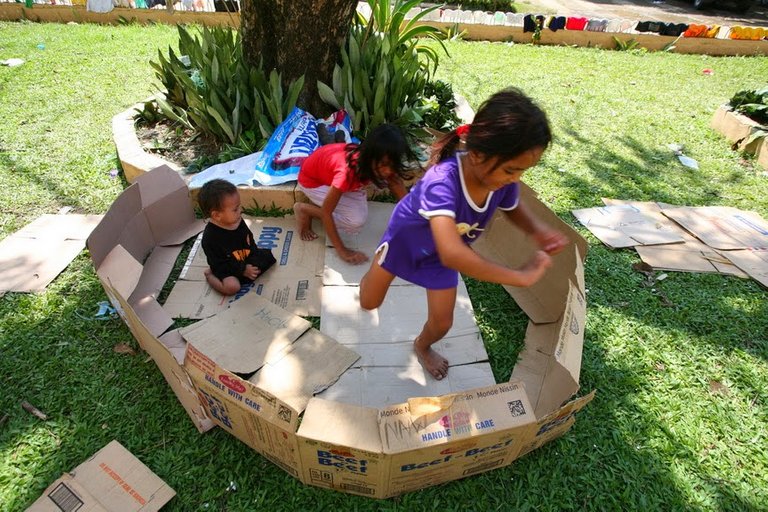
image source
Around four or five children can participate in this game. This actually doesn't have any specific criteria, but most of the game consists of a mother, father, brother, sister and the youngest. The players act as if they are family living in a house. They can play and pretend to cook or do anything that a family does.
Filipinos have an innovative and totally ingenious ways of creating a positive peer interaction without the aid of any expensive and superfluous materials. Most of the games can be played without any objects at all. Those were the times where our bodies and everything we had were utilized in order to cut the boredom and do some fun.
How do you find my blog? Does some game ring a bell to you? Feel nostalgic yet? Tell me your thoughts, and share your experiences to me :) love, jeizelle

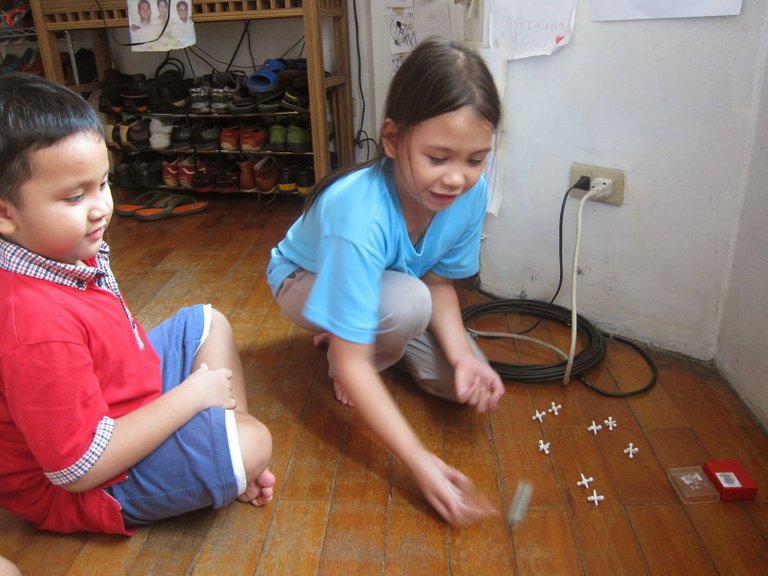
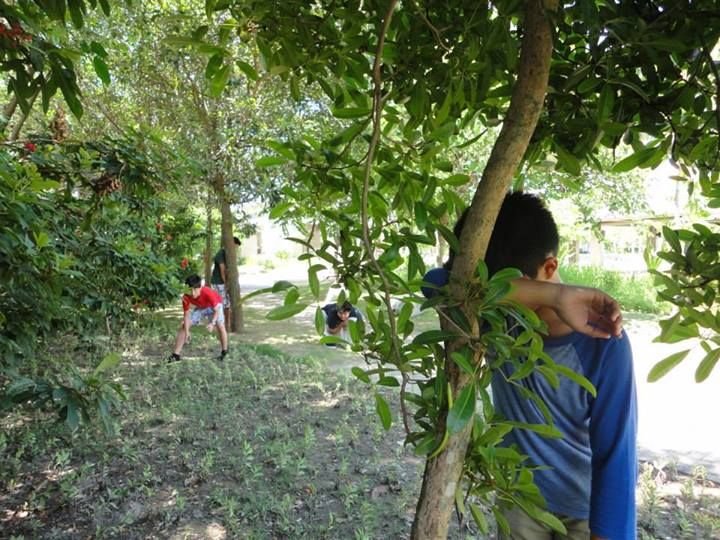

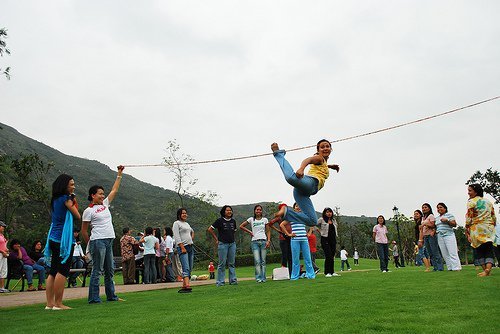

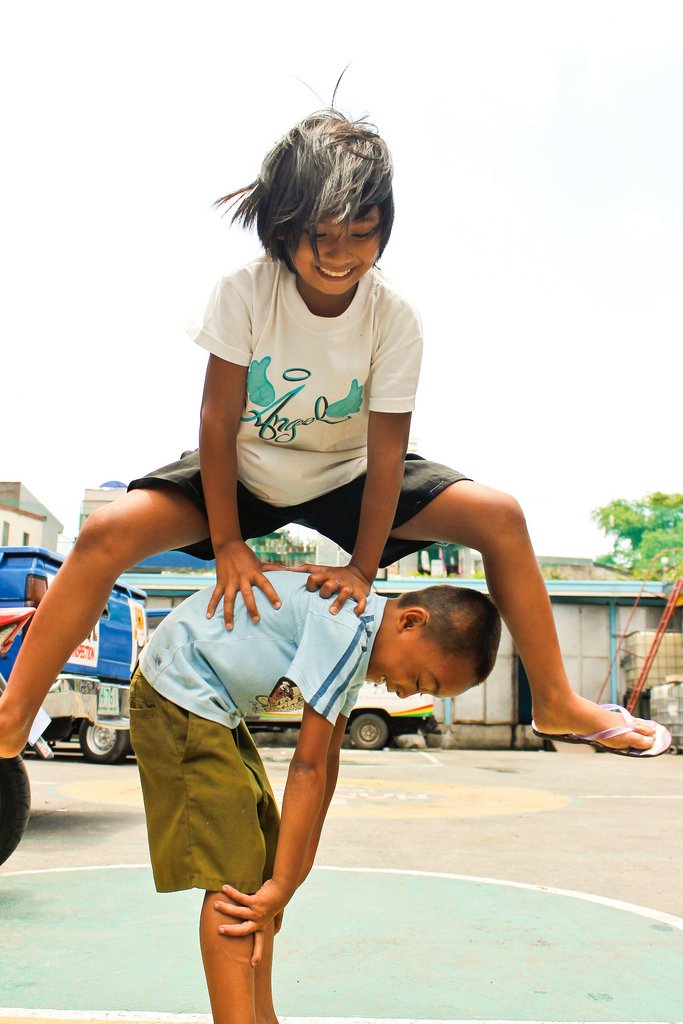
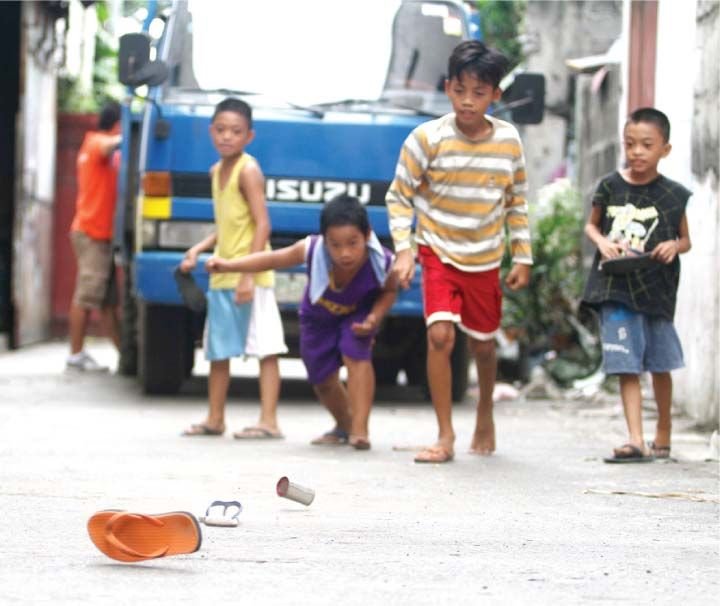
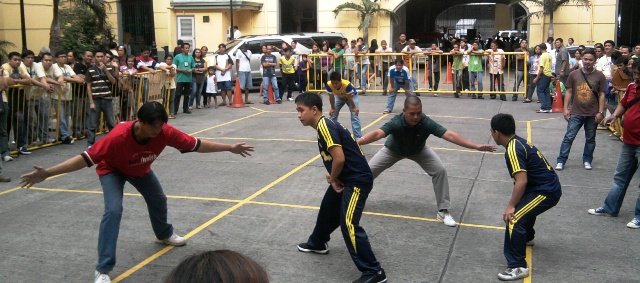
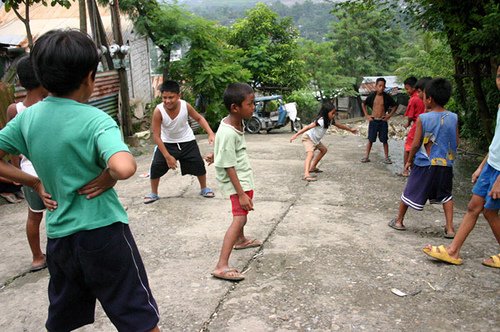

nice post
Thank you ! :)
nice post po. those were the days :D
As in! The days when our problem was going out to play and our parents wouldn’t let us.
yes yes agree to that, but now a days, sa province nalang guro.
very nice post! It gives a very nostalgic feels to me because I grew up playing these games.
Same goes for me. I sometimes wish I could still play these games however I’m too old I guess.